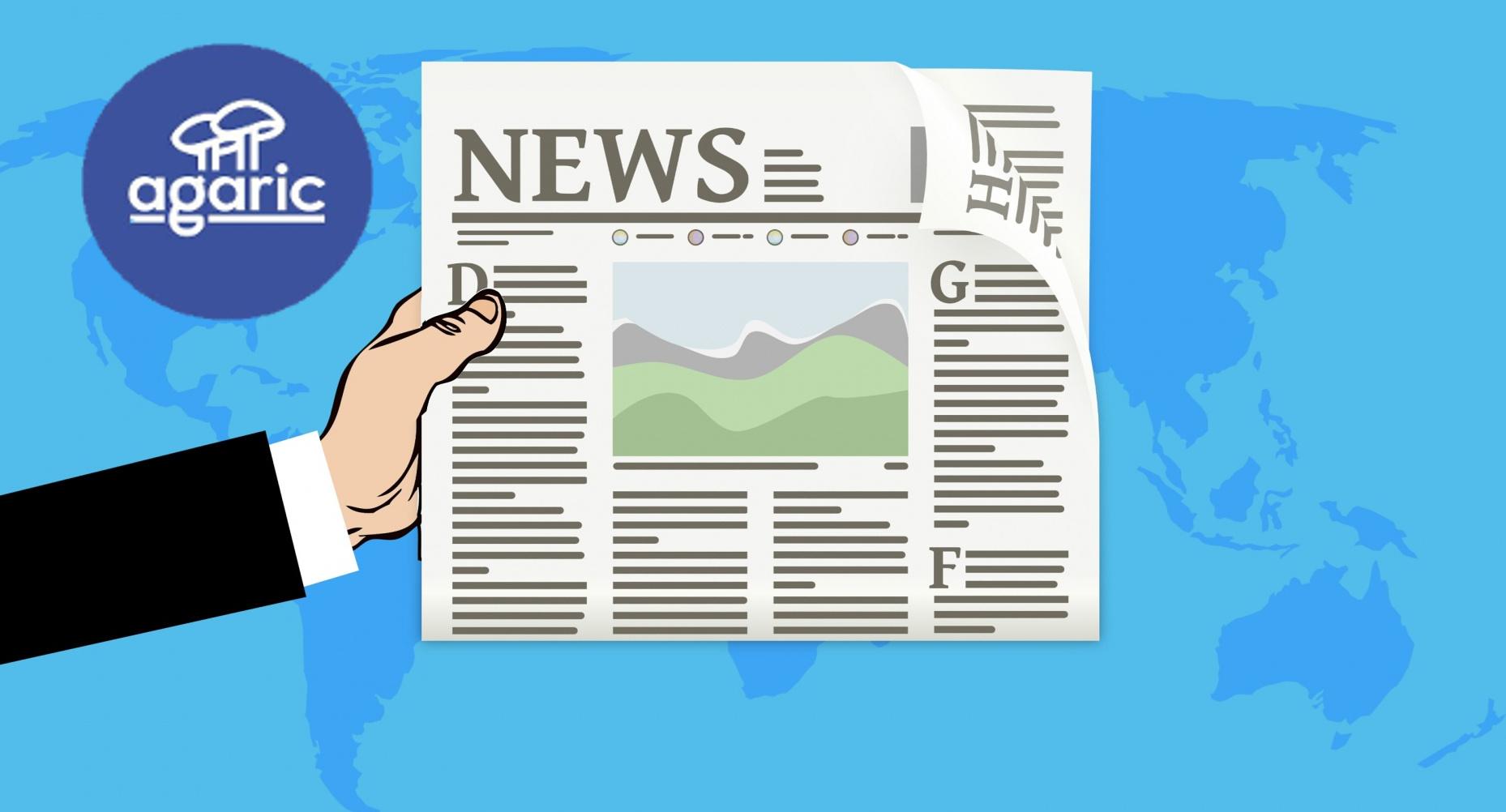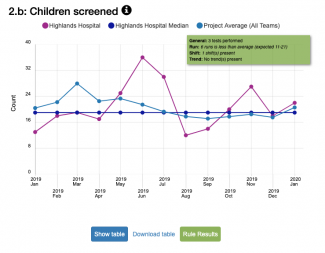
Are you building communities of practice for community health in this time of public recognition of injustice?
The struggle to take seriously the impact of racism on public health during the covid-19 crisis spotlights the importance of health communities of practice and their need to have high-quality, data-driven discussions. How do we have and expand these conversations well?
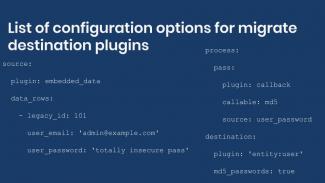
Drupal migrations reference: List of configuration options for destination plugins
In the previous article we provided a reference of available configuration options for migrate source plugins. In today’s article we are doing something similar for destination plugins. We will present a reference of available configuration options for migrate destination plugins provided by Drupal core and some contributed modules. Knowing which options are available might require some Drupal development knowledge. By providing this reference it should make the process of writing migrations easier.
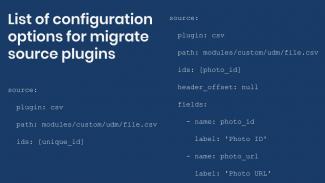
Drupal migrations reference: List of configuration options for source plugins
In a previous article we explained the syntax used to write Drupal migration. We also provided references of subfields and content entities' properties including those provided by the Commerce module. This time we are going to list the configuration options of many migrate source plugins. For example, when importing from a JSON file you need to specify which data fetcher and parser to use. In the case of CSV migrations, the source plugin configuration changes depending on the presence of a headers row. Finding out which options are available might require some Drupal development knowledge.
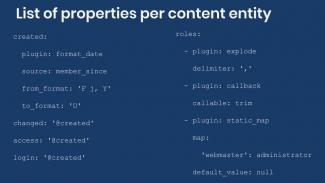
Drupal migrations reference: List of properties per content entity
In a previous article we explained the syntax used to write Drupal migrations. When migrating into content entities, these define several properties that can be included in the process section to populate their values. For example, when importing nodes you can specify the title, publication status, creation date, etc. In the case of users, you can set the username, password, timezone, etc. Finding out which properties are available for an entity might require some Drupal development knowledge.
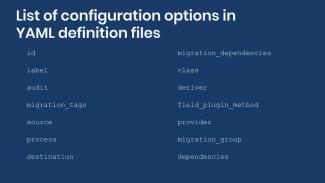
Drupal migrations reference: List of configuration options in YAML definition files
In today’s article we are going to provide a reference of all configuration options that can be set in migration definition files. Additional configuration options available for migrations defined as configuration will also be listed. Finally, we present the configuration options for migrations groups.

Free Drupal 9 webinars on site building, migrations, and upgrades
On Tuesday, July 7, Agaric will host 3 free online webinars about Drupal 9. We invite the community to join us to learn more about the latest version of our favorite CMS. We will leave time at the end of each presentation for questions from the audience. All webinars will be presented online via Zoom. Fill out the form at the end of the post to reserve your seat. We look forward to seeing you.

Show and Tell con Agaric - Compartir el Trabajo con Otras Cooperativas
Agaric hosts a weekly Show and Tell to share tips and tricks, but this week we had a presentation on how cooperative developers can share work on projects.

Show and Tell with Agaric - Sharing Work with Other Coops
Agaric hosts a weekly Show and Tell to share tips and tricks, but this week we had a presentation on how cooperative developers can share work on projects.

Online trainings on Drupal migration and upgrades
Agaric is excited to announce online training on Drupal migrations and upgrades. In July 2020, we will offer three trainings: Drupal 8/9 content migrations, Upgrading to Drupal 8/9 using the Migrate API, and Getting started with Drupal 9.

Keep modules compatible with multiple Drupal Core branches while using new services
How to keep modules compatible with Drupal 8.7 and below while still using the new services.
Pagination
- Previous page
- Page 2
- Next page

